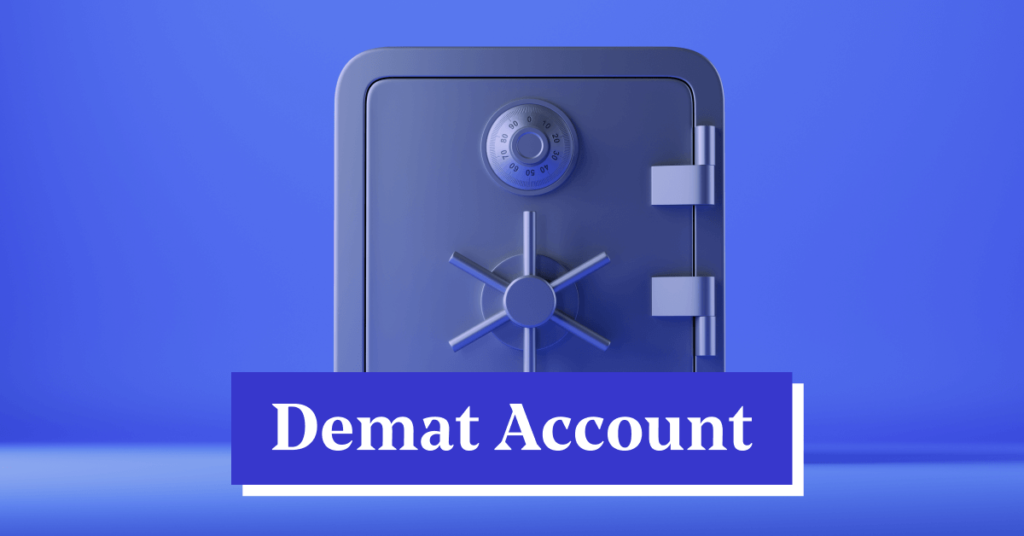Open a Demat & Trading Account

Investing in the stock market is an excellent way to grow wealth, but before you begin trading, you must have a Demat account and a trading account. These accounts serve as the foundation for stock investments, allowing you to store securities electronically and execute buy or sell orders in the market.
Why is a Demat & Trading Account Important?
A Demat account acts like a digital locker where your shares are stored safely, eliminating the need for physical share certificates. A trading account, on the other hand, is your gateway to stock exchanges like NSE (National Stock Exchange) and BSE (Bombay Stock Exchange), allowing you to buy and sell securities.
Without these accounts, you cannot trade in the stock market. To ensure smooth and secure transactions, these accounts must be linked to a bank account for seamless fund transfers.
How to Open a Demat & Trading Account?
The process of opening a Demat and trading account is simple and can be completed online within a day. Here’s how:
1. Choose a SEBI-Registered Stockbroker
Selecting the right broker is crucial. Consider the following while choosing a stockbroker:
- Reputation & Credibility: Opt for a well-known broker registered with SEBI (Securities and Exchange Board of India).
- Brokerage Charges: Some brokers charge a percentage of each trade, while others offer zero brokerage on equity delivery.
- User-Friendly Platform: A trading platform should be easy to navigate, offering real-time market data and technical analysis tools.
- Customer Support: Look for brokers with strong customer service to assist you when needed.
- Additional Services: Some brokers offer stock research, advisory services, and margin trading for advanced users.
Popular Brokers in India
- Zerodha – Best for low-cost investing & beginner-friendly interface.
- Upstox – Offers a seamless mobile app with free account opening.
- Angel One – Provides AI-based recommendations and research reports.
- Groww – Simple platform, ideal for new investors.
- ICICI Direct, HDFC Securities, and Kotak Securities – Full-service brokers with banking support.
2. Complete the KYC (Know Your Customer) Process
To open your Demat account, you must complete the KYC verification, which involves submitting:
✅ Identity Proof – PAN card (mandatory as per SEBI regulations).
✅ Address Proof – Aadhaar card, Voter ID, Passport, or Utility Bill.
✅ Bank Proof – Canceled cheque or bank statement to link your trading account.
✅ Income Proof – Required for trading in derivatives (F&O).
✅ Passport-Size Photograph – For verification purposes.
Most brokers offer paperless e-KYC, where you can upload scanned copies of these documents for instant approval.
3. Link Your Bank Account
A trading account must be linked to a savings bank account to transfer funds. Ensure your bank account allows online transactions and UPI payments for quick fund transfers.
Bank Account Linking Options:
- UPI Transactions – Fastest way to add funds.
- Net Banking – Secure and reliable.
- NEFT/RTGS/IMPS – Traditional methods with slightly longer processing times.
4. Set Up Your Trading Platform
Once your account is approved, you will receive login credentials for your broker’s trading platform (mobile app, web, or desktop software).
Things to Do After Setup:
✔️ Learn how to place buy/sell orders.
✔️ Explore market watchlists to track stocks.
✔️ Check for available investment tools and indicators.
✔️ Enable notifications for stock price alerts.
✔️ Start with a virtual or small investment to understand market dynamics.
Final Thoughts
Opening a Demat and trading account is the second crucial step in your investment journey. It allows you to participate in the stock market and start building your financial future. Make sure to choose a reliable broker, complete your KYC, link your bank account, and familiarize yourself with the trading platform.
Next Step: Learning Market Basics & Making Your First Investment
After setting up your Demat and trading account, the next step is to understand how the stock market works and begin investing wisely. Research stocks, study price movements, and diversify your investments to minimize risks.
Want guidance on stock market basics and investment strategies?
Are you ready for Step 3: Learning Stock Market Basics & Making Your First Investment? Let me know if you need help! 🚀📊
Read More: https://wealthfitlife.com/step-1-to-start-investing-in-stock-market/
FAQs
1. What is the difference between a Demat and a Trading account?
A Demat account holds your shares in electronic form, while a trading account is used to execute buy and sell orders on stock exchanges.
2. Can I open a Demat account without a trading account?
Yes, you can open a Demat account alone to hold shares, but to buy and sell stocks, you must have a trading account.
3. Is opening a Demat account free?
Some brokers offer zero account opening fees, while others may charge a fee. There may also be an Annual Maintenance Charge (AMC) for the Demat account.
4. How long does it take to open a Demat account?
With online KYC verification, your Demat account can be opened within 24–48 hours. The offline process may take 3–5 days.
5. What documents are required to open a Demat account?
- PAN Card (Mandatory)
- Aadhaar Card (for e-KYC verification)
- Bank Account Proof (Cancelled Cheque/Statement)
- Passport-Size Photograph
6. Can I have multiple Demat accounts?
Yes, you can open multiple Demat accounts with different brokers, but you cannot have more than one Demat account with the same broker.
7. Which is the best stockbroker for beginners?
For beginners, Zerodha, Upstox, and Groww are the best options due to their low brokerage fees and user-friendly interfaces.
8. Do I need a bank account to open a Demat account?
Yes, a savings bank account is required to transfer funds for stock trading.
9. Can I open a Demat account without a PAN card?
No, a PAN card is mandatory to open a Demat account as per SEBI regulations.
10. Is there any risk in opening a Demat account?
Opening a Demat account with a SEBI-registered broker is safe. However, investing in the stock market carries financial risks. Always do thorough research before investing.
